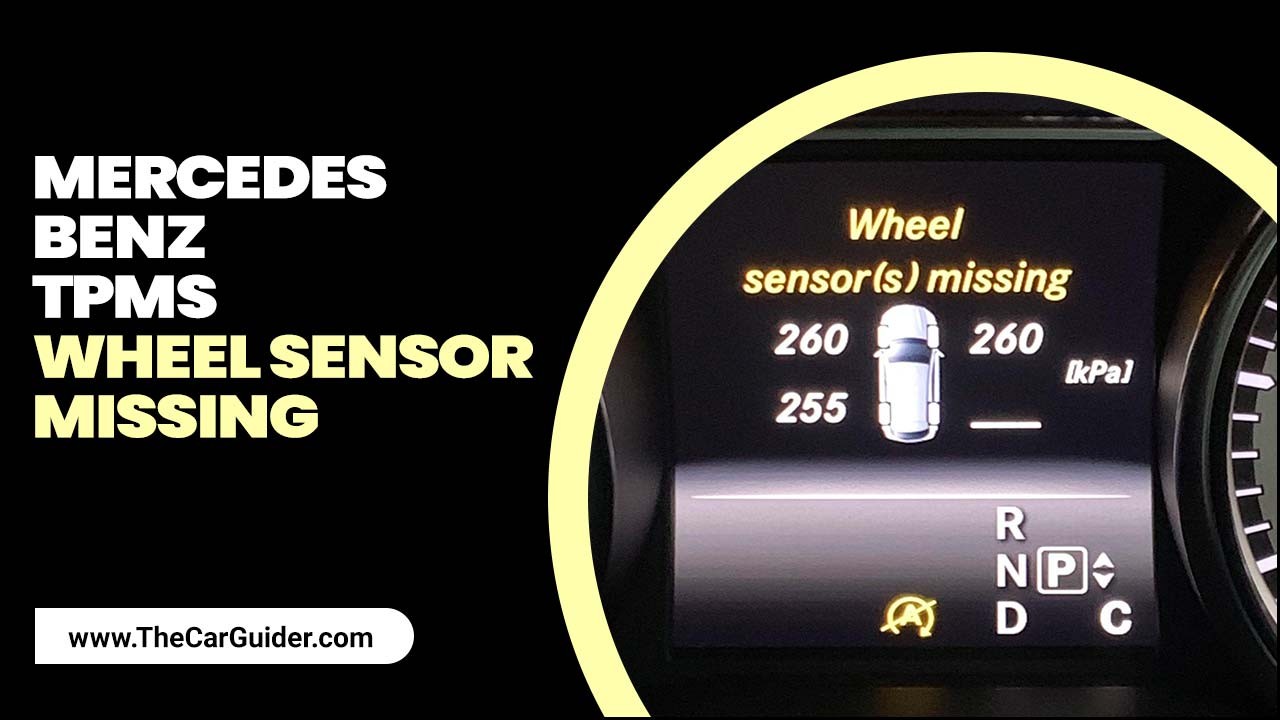A missing wheel sensor on your Mercedes-Benz can compromise safety and performance. This comprehensive guide explores the causes, symptoms, and solutions for a missing Mercedes wheel sensor, helping you understand and address this critical issue.
The Tire Pressure Monitoring System (TPMS) is a vital safety feature in modern vehicles, including Mercedes-Benz. It relies on wheel sensors to monitor tire pressure and alert the driver to potential problems. A missing Mercedes wheel sensor can lead to inaccurate readings, warning lights, and potential safety hazards. Understanding why a sensor might be missing and how to rectify the situation is crucial for maintaining optimal vehicle performance and safety.
Understanding the TPMS and its Importance
The TPMS continuously measures tire pressure and transmits data to the vehicle’s onboard computer. This system enhances safety by alerting the driver to underinflation, which can lead to reduced fuel efficiency, tire wear, and even blowouts. Properly inflated tires are crucial for optimal handling, braking, and overall vehicle control.
Recognizing the Symptoms of a Missing Mercedes Wheel Sensor
A missing or malfunctioning wheel sensor can trigger several noticeable symptoms:
- Illuminated TPMS Warning Light: The most obvious sign is a persistent warning light on the dashboard, indicating a problem with the tire pressure monitoring system.
- Inaccurate or Missing Tire Pressure Readings: The vehicle’s display may show incorrect pressure readings for the affected wheel or no reading at all.
- Error Messages: The infotainment system might display error messages related to the TPMS.
Common Causes of a Missing Mercedes Wheel Sensor
Several factors can contribute to a missing wheel sensor:
- Sensor Damage: Physical damage to the sensor from impacts or debris.
- Corrosion: Exposure to road salt and moisture can corrode the sensor.
- Theft or Vandalism: Sensors can be targets for theft or vandalism.
- Misplacement During Tire Service: Accidental removal or damage during tire rotation or replacement.
- Sensor Battery Failure: The sensor’s internal battery has a limited lifespan and can fail.
Diagnosing a Missing Mercedes Wheel Sensor
Diagnosing a missing wheel sensor often involves:
- Visual Inspection: Check the valve stem for a missing or damaged sensor.
- OBD-II Scanner: Use a diagnostic scanner to read error codes related to the TPMS. This will pinpoint the specific wheel with the missing sensor.
Fixing a Missing Mercedes Wheel Sensor
Addressing a missing wheel sensor typically requires replacement:
- Identify the Correct Sensor: Ensure you purchase the correct replacement sensor compatible with your specific Mercedes-Benz model.
- Professional Installation: While some car owners may attempt DIY replacement, professional installation is recommended. This ensures proper sensor placement, programming, and system reset.
Resetting the TPMS After Sensor Replacement
After replacing the sensor, the TPMS may need to be reset. Consult your owner’s manual for the specific procedure for your Mercedes-Benz model. This often involves driving the vehicle for a certain distance or using a specific reset procedure through the vehicle’s infotainment system.
Preventing Future Issues
Regular tire maintenance and inspections can help prevent future issues with your Mercedes wheel sensors:
- Check Tire Pressure Regularly: Maintain proper tire pressure according to the manufacturer’s recommendations.
- Professional Tire Service: Choose reputable tire shops for rotations and replacements to minimize the risk of sensor damage.
Conclusion
A missing Mercedes wheel sensor is a serious issue that should be addressed promptly. By understanding the causes, symptoms, and solutions outlined in this guide, you can maintain a safe and well-functioning TPMS, ensuring optimal performance and safety for your Mercedes-Benz. Don’t ignore warning signs; prioritize your safety and address any TPMS issues immediately.

